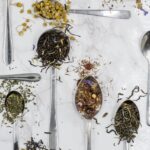Bacterial infections are a common problem, and they can be caused by a variety of bacteria, including Staphylococcus aureus, Streptococcus pneumoniae, and Escherichia coli. While antibiotics are often the first line of treatment for bacterial infections, there are a number of natural remedies that can also be effective.
How do you treat bacterial infections naturally?
There are several natural remedies that can be effective in treating bacterial infections, including:
- Garlic: Garlic contains antibacterial qualities, which can help destroy germs. Garlic can be eaten fresh, cooked, or in supplement form.
- Honey: Honey has antibacterial and antifungal properties. You can apply honey directly to the infected area or take it orally.
- Tea tree oil: Tea tree oil is a natural antiseptic that may be used to fight microorganisms. You can add tea tree oil to a diffuser or apply it directly to the infected area.
- Oregano oil: Oregano oil has antibacterial and antifungal properties. You can take oregano oil orally or apply it directly to the infected area.
- Colloidal silver: Colloidal silver is a natural antibiotic that can help to kill bacteria. You can take colloidal silver orally or apply it directly to the infected area.
In addition to these natural remedies, there are a number of other things you can do to help treat bacterial infections, including:
- Get plenty of rest: Rest helps your body to fight off infection.
- Drink plenty of fluids: Fluids help to flush out bacteria from your body.
- Eat a healthy diet: A healthy diet provides your body with the nutrients it needs to fight off infection.
- Avoid alcohol and caffeine: Alcohol and caffeine can weaken your immune system.
If you have a bacterial infection, it is important to see a doctor to get the proper diagnosis and treatment. However, natural remedies can be a helpful addition to your treatment plan.
Natural Remedies for Bacterial Infections
Garlic
Garlic is a powerful natural antibiotic that has been shown to be effective against a wide range of bacteria, including Staphylococcus aureus, Streptococcus pneumoniae, and Escherichia coli. Garlic contains a compound called allicin, which is responsible for its antibacterial properties. Allicin has been shown to inhibit the growth of bacteria and to kill bacteria by damaging their cell membranes.
Garlic can be eaten fresh, cooked, or in supplement form. To get the most benefit from garlic, it is best to eat it raw. However, cooked garlic is also effective against bacteria. You can add garlic to your favorite dishes or take garlic supplements.
Honey
Honey is another natural antibiotic that has been shown to be effective against a wide range of bacteria. Honey contains a number of compounds that have antibacterial properties, including hydrogen peroxide, glucose oxidase, and bee venom. Hydrogen peroxide is a very potent oxidizing chemical that may kill bacteria by destroying their cell membranes. glucose oxidase is an enzyme that creates hydrogen peroxide. Bee venom has antibacterial and antifungal properties.
You can apply honey directly to the infected area or take it orally. To apply honey to the infected area, simply spread a thin layer of honey over the area and cover it with a bandage. You can also take honey orally by taking a spoonful of honey several times a day.
Tea Tree Oil
Tea tree oil is a natural antiseptic that has been shown to be effective against a wide range of bacteria, including Staphylococcus aureus, Streptococcus pneumoniae, and Escherichia coli. Tea tree oil contains a compound called terpinen-4-ol, which is responsible for its antibacterial properties. Terpinen-4-ol has been shown to inhibit the growth of bacteria and to kill bacteria by damaging their cell membranes.
You can add tea tree oil to a diffuser or apply it directly to the infected area. To add tea tree oil to a diffuser, simply add a few drops of tea tree oil to the water in the diffuser. To apply tea tree oil directly to the infected area, dilute the tea tree oil with a carrier oil, such as coconut oil or olive oil.
Oregano Oil
Oregano oil is a natural antibiotic that has been shown to be effective against a wide range of bacteria, including Staphylococcus aureus, Streptococcus pneumoniae, and Escherichia coli. Oregano oil contains a number of compounds that have antibacterial properties, including carvacrol and thymol. Carvacrol and thymol have been shown to inhibit the growth of bacteria and to kill bacteria by damaging their cell membranes.
You can take oregano oil orally or apply it directly to the infected area. To take oregano oil orally, take a few drops of oregano oil in a glass of water or juice. To apply oregano oil directly to the infected area, dilute the oregano oil with a carrier oil, such as coconut oil or olive oil.
Colloidal Silver
Colloidal silver is a natural antibiotic that has been shown to be effective against a wide range of bacteria, including Staphylococcus aureus, Streptococcus pneumoniae, and Escherichia coli. Colloidal silver is made by suspending silver particles in water. Silver has antibacterial properties that have been shown to inhibit the growth of bacteria and to kill bacteria by damaging their cell membranes.
You can take colloidal silver orally or apply it directly to the infected area. To take colloidal silver orally, take a few drops of colloidal silver in a glass of water or juice. To apply colloidal silver directly to the infected area, simply apply a few drops of colloidal silver to the area and cover it with a bandage.
Other Tips for Treating Bacterial Infections
In addition to natural remedies, there are a number of other things you can do to help treat bacterial infections, including:
- Get plenty of rest: Rest helps your body to fight off infection. When you’re unwell, your body requires time to recover. Make sure you get enough of rest so your body can mend.
- Drink plenty of fluids: Fluids help to flush out bacteria from your body. When you are sick, it is important to drink plenty of fluids to help your body fight off the infection. Drink lots of water, juice, and soup.
- Eat a healthy diet: A healthy diet provides your body with the nutrients it needs to fight off infection. When you are sick, it is important to eat a healthy diet to help your body recover. Eat plenty of fruits, vegetables, and whole grains.
- Avoid alcohol and caffeine: Alcohol and caffeine can weaken your immune system. When you are sick, it is important to avoid alcohol and caffeine so that your body can fight off the infection.
If you have a bacterial infection, it is important to see a doctor to get the proper diagnosis and treatment. However, natural remedies can be a helpful addition to your treatment plan. By following these tips, you can help your body to fight off the infection and recover quickly.




